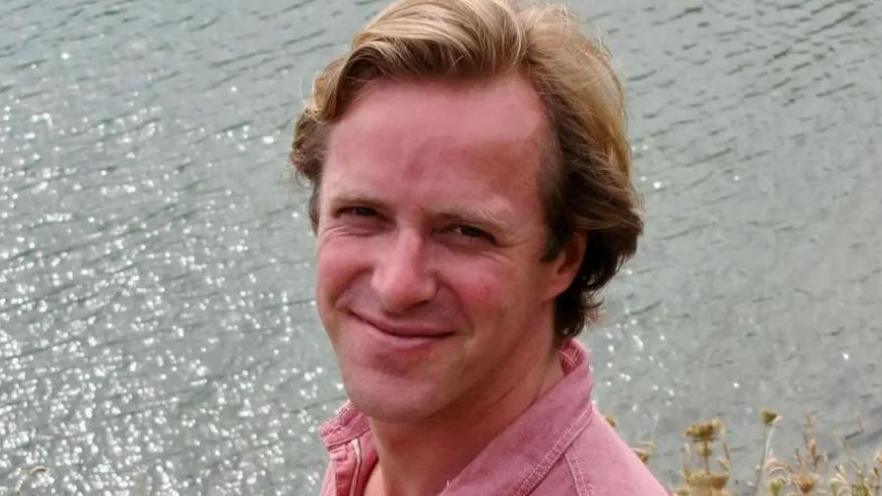Medication warning after Thomas Kingston's death

Thomas Kingston married Lady Gabriella Windsor in 2019, with Queen Elizabeth II and Prince Philip in attendance
- Published
A coroner has issued a warning about the effects of medication used to treat depression after the husband of Prince and Princess Michael of Kent's daughter took his own life.
Thomas Kingston, 45, died from a head injury on 25 February 2024 at his parents' home in the Cotswolds. A gun was found near his body.
Mr Kingston, who was married to Lady Gabriella Kingston, had stopped taking his medication in the days leading up to his death.
In a prevention of future deaths report, Katy Skerrett, senior coroner for Gloucestershire, said action must be taken over the risk to patients prescribed selective serotonin reuptake inhibitor (SSRI) medications.
At an inquest into his death held in December, Ms Skerrett recorded a narrative conclusion. She said that Mr Kingston had taken his own life, adding: "He was suffering adverse effects of medication he had recently been prescribed."
Mr Kingston had initially been prescribed sertraline, a drug used to treat mental health problems, and zopiclone, a sleeping tablet, by a GP at the Royal Mews Surgery.
The practice at Buckingham Palace, used by royal household staff, had prescribed the medications after Mr Kingston complained of trouble sleeping following stress at work.
He later returned to the surgery, saying they were not making him feel better and his doctor moved him from sertraline to citalopram, a similar drug.
Thomas Kingston took life after reaction to medication
- Published3 December 2024
Prince William attends Thomas Kingston's funeral
- Published12 March 2024
Royals mourn Prince Michael of Kent's son-in-law
- Published27 February 2024
In her report, Ms Skerrett questioned whether there was adequate communication of the risks associated with such medication.
She also raised concerns about whether the current guidance to persist with SSRIs, or switch to an alternative SSRI medication, was appropriate when no benefit had been achieved, "especially when any adverse side effects are being experienced".
The report has been sent to the National Institute for Health and Care Excellence, the Medicines and Healthcare Products Regulatory Agency and the Royal College of General Practitioners, which have 56 days to respond.
If you, or someone you know, have been affected by the issues in this story, help and support is available at bbc.co.uk/actionline
Get in touch
Tell us which stories we should cover in Gloucestershire
Follow BBC Gloucestershire on Facebook, external, X, external, and Instagram, external. Send your story ideas to us on email or via WhatsApp on 0800 313 4630.